Banking from your phone?
Download our app
Welcome Back
You can access your accounts here.

Banking from your phone?
Scan the code to download our app.

not featured
2024-04-18
Savings
published
Rainy Days: Savings Accounts for Emergencies
%20(1).png)
-
In the face of life's challenges, finding reliable protection is crucial. Just as an umbrella shields you from the rain, a well-prepared financial strategy safeguards you during uncertain times. Establishing a savings account1 is the cornerstone of creating a rainy day fund. Join us in examining the benefits of Armed Forces Bank's savings accounts and how they can fortify you against life's adversities.
Basics of Savings Accounts
A savings account1 is a simple way to safely store money. They earn interest but at a slower rate than other savings methods. These accounts are perfect for someone who wants to grow their funds over time but can’t invest a large sum of money upfront. But why would someone choose this saving strategy for a rainy day? Let’s dive a little deeper.
Why is a Savings Account good for a rainy day fund?
Savings accounts are suitable for rainy day funds because they are the most accessible saving method. They are a great tool to help hold money for a financial bump in the road, and there is very little risk involved. You can also access the money in your savings account at any time, which is great if you need to use the money in your account several times during an emergency.
Advantages of Savings Accounts
- Easy Access: Regular savings accounts are typically hassle-free to open and manage, providing convenient access to your funds whenever necessary.
- Security: Your funds in a savings account are generally safeguarded and insured up to a certain limit by the government. (Learn more about FDIC Insurance)
- Flexibility: With standard savings accounts, you often enjoy the flexibility to deposit and withdraw funds without limitations.
- Low Opening and Minimum Balance: Many standard savings accounts require a low minimum balance. For example, at Armed Forces Bank, a mere $25 deposit is all it takes to begin. While maintaining a minimum balance of $100 is necessary, failing to meet this requirement incurs a $5 service fee.
Disadvantages of Savings Accounts
- Low Interest Rates: Regular savings accounts typically offer lower interest rates compared to alternative investment options, potentially resulting in slower wealth accumulation.
- Inflation Concerns: If the interest rate on your savings account doesn't keep up with inflation, your purchasing power may decline over time.
- Associated Fees: Some savings accounts may include fees such as monthly maintenance charges or penalties for excessive withdrawals, impacting your overall savings.
- Opportunity Cost: While savings accounts provide security, they may not yield as high returns as more aggressive investment strategies, possibly missing out on lucrative growth opportunities.
Rainy Day Savings Accounts with Armed Forces Bank
At Armed Forces Bank, savings account holders can join a unique program aimed at increasing their savings. Our Saving Cents2 initiative automatically rounds up your everyday purchases and deposits the spare change into your savings account. This program is invaluable for boosting your emergency fund and ensuring you're financially prepared for unexpected challenges.
Looking to expand your arsenal of tools and resources to support your savings goals? In addition to Saving Cents, consider utilizing our various financial calculators. Specifically, you can evaluate your progress and plan for future rainy days with the Emergency Savings Calculator. That way, you are prepared to weather life’s storms with confidence.
While there are numerous compelling reasons to opt for a standard savings account, your choice of savings method may vary depending on your financial objectives. Interested in discovering how money markets can assist in creating an emergency fund? Explore this savings approach for unexpected expenses in our earlier blog post.
Member FDIC
1$25 minimum opening deposit required. $100 minimum balance required to avoid $5 monthly service charge. $5 paper statement fee applies. Closing new accounts within 90 days of opening will result in a $20 closure fee.
2 Choose from $1 to $5 increment to round up on your debit card purchases from your checking account. Each night all the extra change will automatically transfer from your checking to your savings.